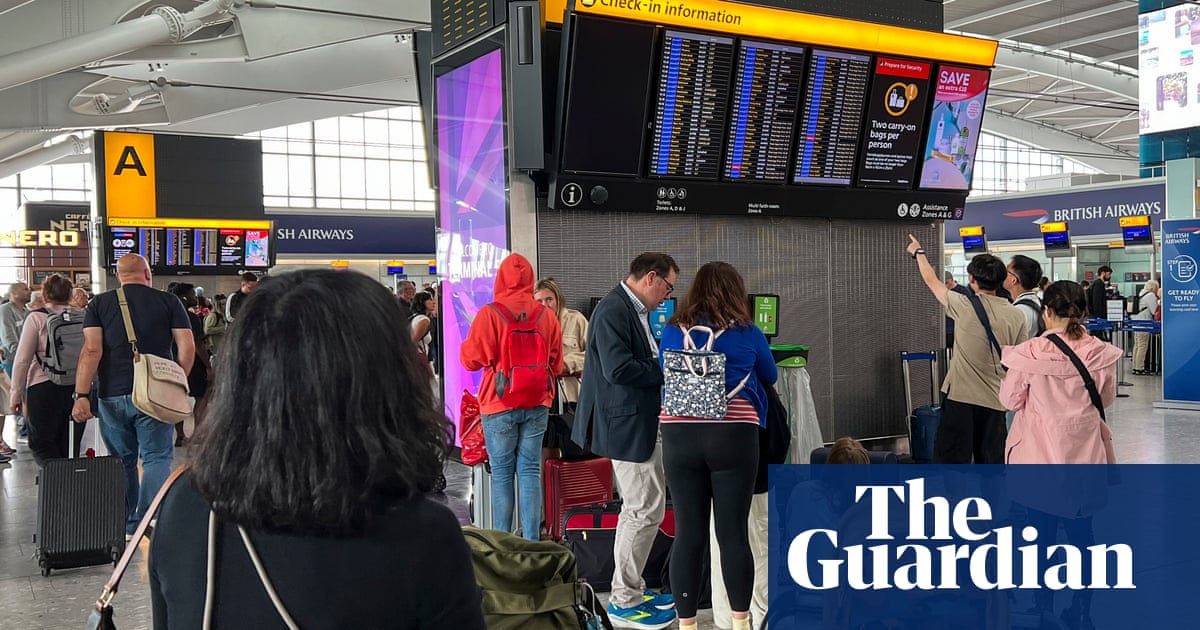
Heathrow airport has said more than 1.3 million passengers cancelled their travel plans over the Christmas and new year period because of Omicron, with hopes for a summer recovery after a weak start to the year.
The airport said travel was down 56% in January compared with 2019 levels, a worse start to the year than it had forecast, as the hangover from the Omicron variant affected traveller confidence.
“After a tough Christmas, Omicron has continued to bite, and this has been a weak start to the year,” said John Holland-Kaye, the chief executive of Heathrow airport. “As short-lived as the additional travel restrictions were, they ruined the travel plans of more than 1.3 million passengers in the last two months.”
He added that the removal of government restrictions that mean vaccinated travellers arriving in the UK no longer have to take coronavirus tests, which started from 4am on Friday, offered a “ray of hope” for the recovery of the travel industry.
Despite the weaker than expected start, the airport is maintaining its forecast of 45 million passengers this year, just over half of pre-pandemic levels, as it banks on a bumper summer of Britons holidaying abroad.
“We are working with airlines and ground handlers to increase resources across the airport ahead of the summer peak,” the airport said. “While bookings for outbound tourism are recovering, inbound tourism and business travel remain weak due to Covid-19 levels in the UK and other countries, international testing requirements and the risk of new border closures in the event of a new variant of concern.”
Only 19.4 million passengers passed through the airport in 2021 – less than a quarter of 2019 levels and below even 2020, the year the coronavirus was declared a pandemic.
“Today’s removal of restrictions for vaccinated passengers in and out of the UK offers a ray of hope,” Holland-Kaye said. “But the Omicron hangover proves demand remains fragile, and at risk to new variants of concern, and government needs to set out a playbook for managing future variants that allows travel and trade to keep flowing.”











